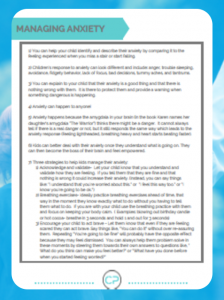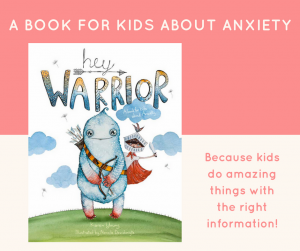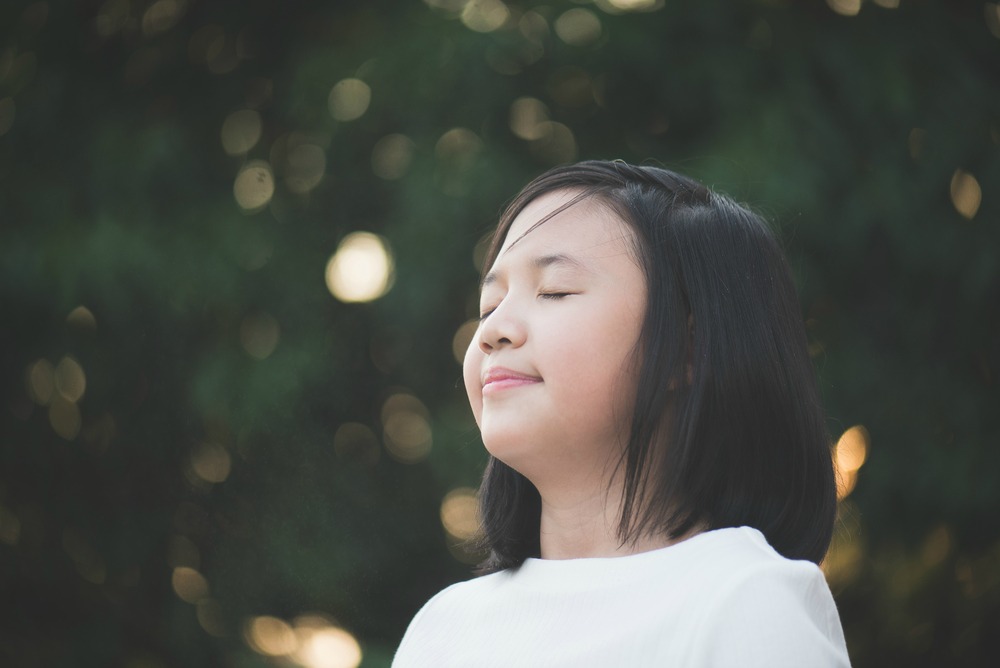A child’s anxiety is stressful to the child and can also be stressful for the child’s family. Anxiety can actually be debilitating for kids. Children may spend endless amounts of time and energy fixated on things such as grades, family issues, peer relationships, and performance in sports, as well as disasters they think might happen or dangers that do not actually exist.
Understanding the different types of anxiety and the options for treatment for children and adolescents is really important. Over the course of the last 5 to 10 years, the practice of mindfulness has received significant attention and gained recognition as an effective means of treating and managing childhood anxiety.
Mindfulness and Anxiety – How Does it Work?
Mindfulness is defined as the ability to pay attention to the present moment with kindness and curiosity and without judgment. The goal of mindfulness is to intentionally draw awareness to thoughts, feelings, or sensations as they happen from moment to moment. Mindfulness helps children pay attention to the here and now, which allows them to distance themselves from what is upsetting them.
And the benefits of mindfulness practice are significant! Here are just a few of the many benefits of using mindfulness with children who are anxious:
- Helps bring attention back to the present, away from worries about the future
- Reduces stress
- Breaks the cycle of worry, where one fear feeds on another until it snowballs into full-blown anxiety or even a panic attack
- Teaches children to identify and accept emotions, rather than feel consumed by them
- Allows children to practice awareness and acceptance without judgment.
How to Incorporate Mindfulness Into Daily Life
Incorporating mindfulness into your family life can be quite simple. Parents don’t need previous experience to start using mindfulness with children. Begin by introducing your child to the practice and explaining how you will use it. You can let them know that mindfulness can be as short as three minutes or as long as an hour and that there are a range of styles and topics. My favorite Mind Yeti sessions for anxious kids include: Anchor Your Boat, Candle Can Do and Tree In The City, but you should explore all the sessions and chose the ones you and your child like best.
Once you have discussed mindfulness with your child, come up with a plan together for how you will use this. You can offer some choices concerning the length of their first session or the topic. By allowing your child to choose and help come up with the plan, you increase their buy-in to implement and participate in the practice. The more consistently and frequently you practice, the better. By practicing at the same time each day, you ensure consistency and increase efficacy.

This article written by Melissa Benaroya was originally published on the Mind Yeti blog on March 18, 2017.
About the Author: Melissa Benaroya
 Melissa Benaroya, LICSW, is a Seattle-based parent coach, speaker and author in the Seattle area (MelissaBenaroya.com). She created the Childproof Parenting online course and is the co-founder of GROW Parenting and Mommy Matters, and the co-author of The Childproof Parent. Melissa provides parents with the tools and support they need to raise healthy children and find more joy in parenting. Melissa offers parent coaching and classes and frequently speaks at area schools and businesses. Check out Melissa’s blog for more great tips on common parenting issues and Facebook for the latest news in parent education.
Melissa Benaroya, LICSW, is a Seattle-based parent coach, speaker and author in the Seattle area (MelissaBenaroya.com). She created the Childproof Parenting online course and is the co-founder of GROW Parenting and Mommy Matters, and the co-author of The Childproof Parent. Melissa provides parents with the tools and support they need to raise healthy children and find more joy in parenting. Melissa offers parent coaching and classes and frequently speaks at area schools and businesses. Check out Melissa’s blog for more great tips on common parenting issues and Facebook for the latest news in parent education.
A Book for Kids About Anxiety …

‘Hey Warrior’ has been written for children to help them understand anxiety and to find their ‘brave’. It explains why anxiety feels the way it does, and it will teach them how they can ‘be the boss of their brains’ during anxiety, to feel calm. It’s not always enough to tell kids what to do – they need to understand why it works. Hey Warrior does this, giving explanations in a fun, simple, way that helps things make sense in a, ‘Oh so that’s how that works!’ kind of way, alongside gorgeous illustrations.



Hello there,
I hope this email finds you doing well.
I’m so grateful for your website (which I just recently discovered). I very much look forward to learning from these resources and sharing them with my 11 year old.
I tried to access the link in this article titled “want some more ideas on how to help your child manage anxiety?” and it’s no longer a live link. It’s in the article titled “Using Mindfulness to Help Your Child Combat Anxiety.”
Take care and thank you for creating this!
Catherine
Hi Catherine! Thanks so much for letting us know. I’m sorry you are having a hard time opening the link. If you navigate to this page you can get the download: https://www.childproofparenting.com/blog/using-mindfulness-to-help-combat-your-childs-anxiety. Thanks for reaching out. – Melissa